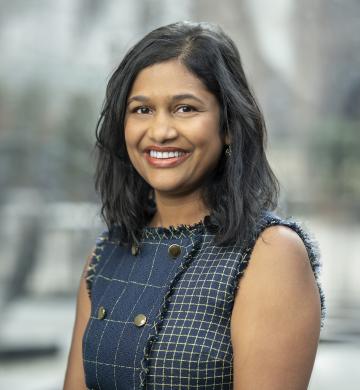Listen to the article
In a quiet exam room in Tennessee, a 58-year-old construction worker sits across from his oncologist, having just received devastating news. What he thought was a heart attack turned out to be small cell lung cancer—an aggressive form that demands immediate treatment. His chest scans revealed a large mass in the upper lobe of his right lung, with enlarged lymph nodes in his thorax, later confirmed by biopsy.
For oncologists, such diagnoses trigger a well-established protocol: complete staging with additional scans, develop a treatment plan in collaboration with surgical and radiation oncology colleagues, and begin treatment quickly. Every day counts when fighting an aggressive cancer that could spread beyond the window for curative treatment.
Yet despite the urgency, the patient asked to pause. He wanted time to consider his options, including alternative treatments he’d learned about on social media—specifically, the antiparasitic drugs ivermectin and fenbendazole. These medications, commonly used for livestock, gained popularity after actor Mel Gibson appeared on Joe Rogan’s podcast claiming friends had been cured of stage IV cancer after taking them.
“Multiple members of my church ‘came back’ from their cancer after trying these treatments,” the patient explained, his face reflecting fear, confusion, and suspicion. He expressed doubts about “Big Pharma” and felt the medical recommendation was being rushed.
This scenario represents a growing challenge in modern medicine—the collision between evidence-based practice and the influence of misinformation spread through social media and celebrity endorsements.
Dr. Samyukta Mullangi, the oncologist treating this patient, notes how different this experience is from her training at Harvard Medical School and Memorial Sloan Kettering Cancer Center. In those settings, patients often arrived with binders of medical articles and lists of clinical trials, questioning whether they were receiving the most cutting-edge treatments—but rarely challenging the fundamental premise of FDA-approved therapies.
In her current practice in exurban Tennessee, Dr. Mullangi encounters different realities. Many patients struggle financially, sometimes postponing treatment until after payday or declining referrals to specialists because they cannot afford the gas money for the trip. These economic vulnerabilities create openings for misinformation to take root.
“When someone in the community or an online personality promises cures that feel more natural, affordable, and empowering, it’s easy to understand the appeal,” Dr. Mullangi explains. “By contrast, the treatments I offer—infusions, radiation, surgery—are intimidating, disruptive, and toxic.”
The rise of medical misinformation paradoxically coincides with the advent of artificial intelligence tools like ChatGPT, which should theoretically flatten the information divide between physicians and patients. Instead, while some patients benefit from these resources, others find themselves “mired in conspiracy theories and pure quackery, despite living within striking distance of the most sophisticated science and medicine in all of human history.”
This changing landscape has forced physicians to adapt their approach. Rather than simply correcting mistaken beliefs with facts, doctors must address the underlying emotions and work to build trust. “The deeper and truer task is to build trust, to acknowledge fears, and to make medicine feel like something more than an impersonal machine,” Dr. Mullangi observes.
For the lung cancer patient, Dr. Mullangi spent extra time discussing his concerns, eventually reaching a compromise: she would proceed with the medical workup and start him on standard treatment while he would also take ivermectin. Though not ideal due to potential drug interactions or liver toxicity, this negotiated approach kept the patient engaged with necessary medical care.
To address these challenges systematically, Dr. Mullangi also works as a senior medical director at Thyme Care, a cancer navigation company that provides teams of nurses, social workers, and community health workers to support patients through diagnosis, treatment, and survivorship. These teams offer what social media influencers promise but cannot deliver: time, continuity, compassion, and practical help.
“This is the practice of oncology in 2025,” Dr. Mullangi reflects. “Evidence and empathy, urgency and uncertainty, trial data and TikTok.” The questions about alternative treatments ultimately reflect concerns about trust, and the physician’s role extends beyond treating cancer to helping patients realize that “decisions are mutual and respectful and that the power and potential of medicine are theirs to claim.”
Fact Checker
Verify the accuracy of this article using The Disinformation Commission analysis and real-time sources.




6 Comments
This highlights the urgent need to combat the spread of medical misinformation, especially around critical issues like cancer treatment. Trusted healthcare providers should be the primary source of guidance for patients, not social media personalities.
It’s understandable that patients facing a serious diagnosis would want to explore all options, but reputable medical experts should be guiding treatment decisions, not social media influencers. Aggressive cancers require prompt, evidence-based care.
Absolutely. Patients deserve accurate, science-based information to make informed choices, not anecdotal claims or unsubstantiated ‘cures’ circulating online.
This is a concerning trend. Patients should rely on evidence-based treatments recommended by their oncologists, not unproven remedies promoted online. Misinformation can have devastating consequences for cancer patients and their outcomes.
While I empathize with the patient’s desire for alternative approaches, ivermectin and fenbendazole are not approved cancer treatments. Oncologists must provide the best standard of care to give patients the highest chance of positive outcomes.
It’s disturbing to see patients rejecting proven cancer therapies in favor of unproven remedies they find online. Oncologists must work hard to educate and reassure patients, while also addressing the root causes of this dangerous misinformation trend.